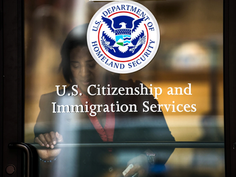China and Canada: Two Different October Events
- Chethana Janith

- Oct 16, 2024
- 8 min read
Chethana Janith, Jadetimes Staff
C. Janith is a Jadetimes news reporter covering science and geopolitics.
October is a month of different histories expressing different realities.

October is a month for reflection of the summer passed, the winter to come, of hopes realised, of dreams dashed, of warm feelings of good cheer chilled by fear of disasters and war. The world is in a bad state.
But it is also a month of history, of different histories expressing different present realities. For instance, in Canada, where I live, it is the month of the October Crisis of 1970, when the country was torn by civil conflict, and martial law, imposed by Prime Minister Pierre Trudeau, the father of the current prime minister.
Canadian conflict
That conflict grew out of the history of the British conquest of the French forces in Quebec in 1763 and the long history of oppression of the French people under British domination since then, which, in the 1960s, developed into the powerful and dynamic independence movement in Quebec under parties such as the Parti Quebecois and leaders such as Rene Levesque and Jacques Parizeau. Their party won its first election in Quebec in 1970. Today there is a second independence party in Quebec that takes part in federal elections, the Bloc Quebecois, though the two cooperate on a number of issues.
The series of events is long, but it is enough to understand that, parallel to the creation of political parties advocating the separation of Quebec from Canada to form a sovereign nation, the frustrations of the political process led others to create a small guerrilla group which they named the Front de Liberation du Quebec, or FLQ, in 1963, which carried out a few minor and largely ineffective attacks on government buildings, officials a railway, the Montreal Stock Exchange, and police stations, demanding the creation of an independent and socialist Quebec.
In 1970, on October 5th, the FLQ conducted an operation in Montreal, kidnapping a British diplomat, James Cross, as a hostage for their demands presented to the government of Quebec to release a number of their members who had been imprisoned, among other demands related to their political goals. The federal and provincial governments rejected the demands and so the group kidnapped a Quebec government official, Pierre Laporte, threatening to kill him unless their demands, seven in all, including release of prisoners, and establishment of a free, socialist Quebec. The response of the provincial premier was to ask for help from the federal government and, on October 12, martial law was declared as federal troops were sent in to Montreal and other towns in Quebec. Hundreds of citizens were arrested by the army and police; many of them leftists, labour leaders and assorted radicals, most of them arrested without charge. By December the cells of the FLQ involved were located, and their members arrested, Cross released, Laporte found strangled.
The result politically was more support among the Quebec people for the Parti Quebecois and its objectives, but a rejection of violence to attain them. Since then, the independence movement has had its ups and downs, ebbs and flows of support as the circumstances and tensions within the Canadian federal state fluctuate. The tensions are still there.
In contrast, the month of October in China is a month of celebration of the events that created the China of today, beginning with the Wuhang Uprising of October 10th 1911.
In contrast, the month of October in China is a month of celebration of the events that created the China of today, beginning with the Wuhang Uprising of October 10th 1911, in the province of Hubei; a revolt of army officers and soldiers of the New Army against the ruling Qing Dynasty, which resulted, a few months later, in the fall of the Dynasty and the creation of the first republic. Sun Yat Sen was made president of the Republic of China on January 1, 1912.
Out of this transformation and out of frustrations with the decisions of the leadership of the new government of the republic arose the large student demonstrations in 1919 protesting the government’s lack of effective opposition to the colonial policies expressed in the Versailles Treaty, while advocating strong nationalist views. The students were angry at the weakness of the government in the face of the Versailles Treaty that gave to Japan some Chinese territories the Japanese had seized from German occupiers in 1914, a national humiliation. The protest that erupted as a result became known as the May 4th Movement, and it was out of the groups involved that came many leaders of the future Communist Party of China.
But China was to face a long struggle to decide the final character of the republic with some elements wanting to bring back the monarchy or create a new one, some wanting a capitalist, others a socialist, republic. The struggles were protracted and included periods of chaos, civil warn, and banditry, the creation of the Communist Party in 1921, the massacre of its members in Shanghai by Chiang Kai-shek in 1927, the Long March, the invasion by Japan, and the civil war between the capitalist and communist forces which led to the decisive victory of the communist forces in China and the declaration, by Mao Tse Tung, in Beijing on October 1st, 1949, of the creation of the People’s Republic of China, the beginning of the flowering of China into a modern state in which prosperity is shared by and with all its peoples, who now share with the world the beauty and sophistication of their civilisation and their collective society.
Canada has failed to realise its potential.
Whereas Canada has never achieved a republic, but is ruled by a constitutional monarchy, derived from the British colonial epoch whose elites, loyal to the British Crown and British finance until 1945 are now loyal vassals and puppets of the American capital and the aggressive foreign policies of the United States.
It is a country of vast territories and natural resources with a relatively small population all of whom should be rich but half of whom live near the poverty level or below it as the nations resources are exploited for the benefit of largely American investors, its primary industrial base gutted by free trade agreements with the United States and complete lack of vision among the leadership groups of how to develop the country in any rational way.
Many people are relatively well-off, yet doctors are now reporting that they are seeing cases of scurvy appearing in the population, never seen before, due to a lack of adequate nutrition among poorer segments of the society.
In a recent legal case filed against the federal government by an indigenous group demanding that the Canadian government provide them with access to clean water, the Canadian government stated that it has no legal obligation to provide them with clean water. This is the government that essentially swindled them out of their rights to their lands and forced them to live on reserves and which claims to regret its century long policy of trying to destroy the indigenous cultures and achieve their total assimilation, that is annihilation as peoples and cultures. The government has even created a national holiday to celebrate “truth and reconciliation” between the Canadian state and the First Nations for the crimes committed against them, yet the harsh policies, continue. No one has been held to account. The inhumanity continues
Among the general population, most people get by, but it is becoming more and more difficult with a lack of jobs, and rising costs of almost everything. And what are the solutions offered by the government? There appear to be none. If the natural wealth of the nation was distributed and shared among all the people equally, all of them would be well-off. But this will never happen here. The potential of Canada will never be realised under the current economic and political regime, which all the major parties support. And while we still have a good national health care system, something Americans can only dream of, they are undermining that too to satisfy the largely US but also Canadian insurance companies who hope to profit from its privatisation.
Two different histories, Two different realities:
So, we see two different histories; on the one hand, that of a nation sunk into poverty and chaos a hundred years ago which has, under the communists, restored its prosperity with its independence, while, on the other, Canada, a nation gifted with immense resources and potential, sinking into mediocrity and decline.
Yet, the two nations are connected. Canadians are respected in China, or were until recently. Canadians, like Dr. Norman Bethune, gave their lives to help the revolutionary forces of the People’s Liberation Army in the 1930s. They were welcomed despite the fact that in 1923 the Chinese Exclusion Act was adopted by Canada, banning all Chinese entry into Canada. Prior to that, they had applied a head tax to Chinese families so that the Chinese men, who came to Canada to build the railways in the late 1800s and early 1900s, could not be joined by their families. The Exclusion Act kept them out completely. It was not rescinded until 1947.
It was the same Prime Minister Trudeau who applied martial law in 1970 who became one of the first western leaders to recognise China in the same year and then to visit China in 1973. The racist policies of the Canadian state seemed suddenly to have disappeared, replaced by friendship and cooperation.
But with the arrest of Meng Wanzhou in 2018, on American orders, all that changed as Canada once again surrendered its own interests in cooperation with China to American demands to insult China, to embargo its products, to once again sow the seeds of racism among Canadians.
Since then, the Canadian media has echoed the statements of its politicians and the intelligence service and their fake stories of Chinese “influence” in Canada, fake stories of human rights violations in China, interference in Hong Kong, claims of Chinese world aggression, their support for Taiwan independence. Sanctions have been applied by Canada against China. They are illegal under international law, but that does not matter. Diplomats have been expelled, trade disputes created out of thin air, the list of harassment is a long one. The point is to hurt China.
This past week, Canada slapped a 100 per cent tariff on Chines electric vehicles, batteries and other electronic components, even though Canada does not manufacture electric vehicles. The EU did the same, all at US direction. China has filed a claim with the World Trade Organisation and has restricted the import of certain agricultural products.
Canadian war ships, as insignificant as they are, have challenged China’s sovereignty in its territorial waters in the South China Sea, and the Taiwan Straight, sends spy planes close to its borders, sends spies into China to gather intelligence, alarms the Canadian people that China is an aggressive nation and paints the Chinese people as the old stereotypes of the racists painted them.
Yet, as Canada becomes more hostile in lock step with the United States, every ready to obey commands from Washington, China tries to bring back relations to the period of friendship ad cooperation.
China Seeks Cooperation-Canada supports US domination
In Ottawa on September 25th, the Chinese Embassy hosted a reception to celebrate China’s National Day, which I attended, and at which the Chinese Ambassador, Wang Di, gave a heartfelt speech reminding us all of that period of friendship between Canada and China and insisting that friendship can and must be restored, that there are no real conflicts of interest between the two nations, that everything can be achieved through dialogue and good intentions. He was applauded even by the Canadian diplomats who attended, though the dozen or so Canadian military officers present, clapped less or stood there with their drinks in hand, just looking on. It was just a few days later, as though in reply to his call for friendship and cooperation, that Canada hit China with the new tariff on electric vehicles.
There we have it; two nations, two Octobers, two different histories, heading in different directions. One, China, free and independent, is proud of what its people have accomplished, sure of its place in the world, the other, Canada, a nation of great potential unrealised, is a captive of its own elites whose blindness to the world reality, infected by racism, makes them unable to escape the domination of the United States and American capital, who are unable to see Canada as an independent nation free to develop in it own way, and who regard Canada as little more than a semi-autonomous province of the United States.











































Comments